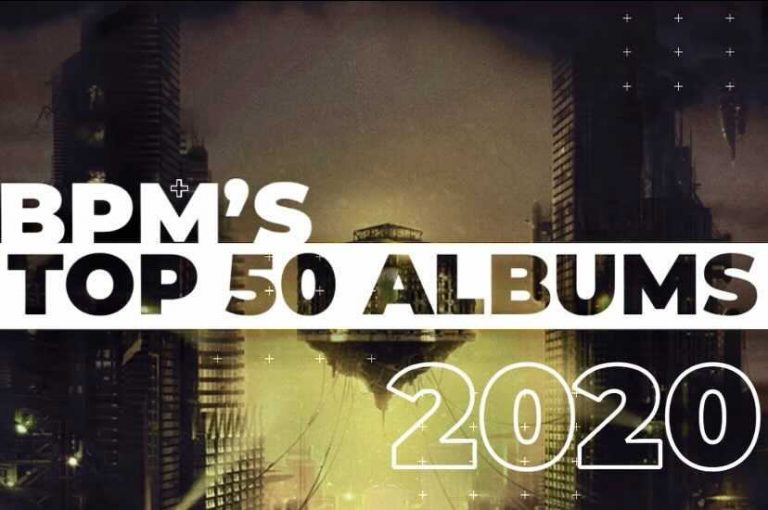Well.
Well, this was a year. When we got back together, a mixture of old school BPMers and some blessed new blood, we were excited for what was to come. We still are, but I’ll be damned if 2020 won’t go down as the most possibly ignoble year for a publication to come back into existence. But, hell, we made it, and so, as you’re reading this, did you.
Somehow.
As a combination of global meltdowns, a petulant, brain-addled child belching his dying gasps in the office of the most powerful entity on Earth, and a goddamned pandemic ran 2020 into the ground, the music industry, somehow, braced itself. As it always does. (Hey, film industry, first time?)
As surely countless releases were halted and delayed (we just know you took a Kendrick LP from us this year, COVID19. Add it to your sins), the business – the artform – somehow chugged on.
What we got was sure as hell a, let’s say, unconventional year, but nonetheless a memorable one. Here, we’ve attempted to collect some of the very best albums to arrive during this maelstrom. There’s no possible way to highlight them all, and apologies to anything released following our selection process (Son Lux, we love your album!), but we hope you enjoy.
We sure did. Hell, we had to find something to enjoy in this cursed year.
Lots of love. Be there for each other.
Enjoy a Spotify playlist of the highlights from our Top 50 albums here.
Catch up with all of our Best of 2020 content here.
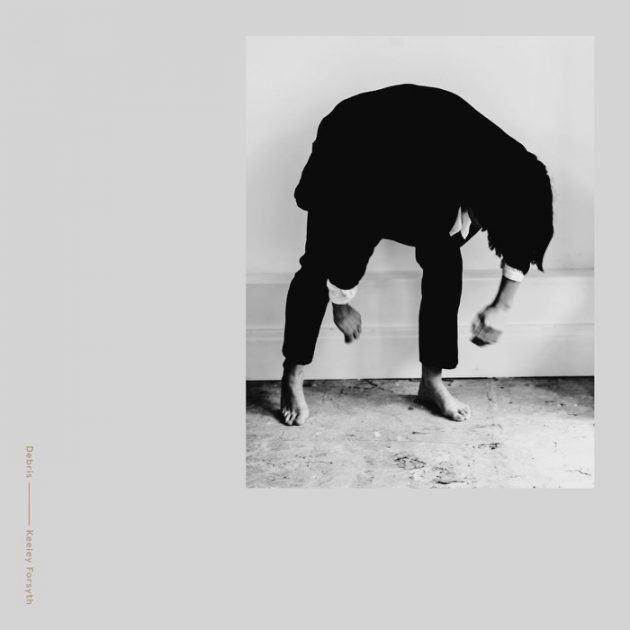
50.
Keeley Forsyth – Debris
[The Leaf Label]
“Look to yourself and you will know everything that there is to know,” advised Keeley Forsyth at the start of this year. Everything we need to make it through the darkness of Debris lies within our own ears. Sure, these are dark, often painful songs, but there’s a blanket of peace at their core.
The more you dig into the minimalism of Debris, the more the ghosts of negativity dissolve into the ether. This isn’t an album about mourning, it merely sounds mournful. This isn’t an album about pain, it merely sounds painful. But, most of all, this isn’t an album meant to bring you down. It ends with “Start Again”, after all, which sees Forsyth resetting her path in the eyes of God. Angels are waiting, but they’re mocking Forsyth for losing her way on life’s path. She’s equipped to handle this reset, however, as indicated by her voice. Its flexibility knows no bounds; it simultaneously sustains a low frequency while jazzing its way through the blunt chording of songs like “Black Bull”.
Few artists would dare leave their songs so naked in the breeze. Spots of self-consciousness often shroud newer voices in vats of reverb and wetness. Not so with Debris. Forsyth doesn’t forsake the precious debut effort by burying it in white noise. What’s left is a stark, gorgeous, and often tantric exercise in artful restraint. For 11 months, Debris has been a worthy companion to anyone looking to clear their mind and look to themselves in reverence for their own ability to endure and survive hardship. – Michael Cyrs

49.
Lyra Pramuk – Fountain
[Bedroom Community]
The only sounds on Lyra Pramuk’s debut album are made by her voice. If that suggests to you that it’s a choral record then you’d be a little right, but mostly wrong. While her love of singing was born out of a youth spent in church choirs, as she moved into adulthood she started experimenting with what her voice could do – and what she could then do with those sounds through recording and production techniques. The resulting Fountain is a completely indefinable triumph and a confounding listen; what you might be sure is a synth or a drum or a violin is simply not. Yes, there are hints of hymns and doo-wop, but there’s also tastes of industrial, ambient, classical and drone – ultimately, the only label that seems to apply is the wholly unsatisfactory ‘experimental’.
These productions deserve more than simple label tags though, as each one renders an entirely different cinematic scene. Early cuts like “Witness” and “Tendril” could soundtrack nature – endlessly blossoming flora or the night sky in stop motion, images that are uncapturable by the naked eye. “Xeno” harks more towards horror, and could comfortably sit atop some barren landscape full of grotesquely decomposing creatures. Later tracks like “Cradle” and “Gossip” seem to straddle sci-fi and ritual, like some extra-terrestrial ceremonial chant. Ultimately, Fountain is one of those classic ‘you get out of it what you put into it’ – and we suggest you invest all your mind and attention here. – Rob Hakimian

48.
Westside Gunn – Pray For Paris
[Griselda]
The appeal of Griselda as a musical imprint is immediately clear: a throwback to boom-bap hip-hop rife with stories of struggle in the streets, combined with braggadocios claims about wealth and sexual achievements. However, it’s the talent of the individual personas behind the mic that makes the difference. When listening to an album like Westside Gunn’s Pray For Paris, the reverence for the past is apparent, but there’s also the strive to stand out, not being complicit in cultural déjà vu.
Gunn’s most-prominent traits as a rapper are immediately recognizable on Pray For Paris, the “boom boom boom” and other gunfire-replicating ad libs, luxury brand name drops (there’s even a song simply called “Versace”), and wrestling nods are all here, as is his furious upper-register flow, making him sound like a Mafia movie wiseguy who’ll pull the trigger over again. It’s also him at his most-creative and focused as an album curator. The first sounds are from a record-breaking auction for a Leonardo da Vinci piece, Gunn’s opening remarks are “Bonjour,” and the album art is “David with the Head of Goliath” by Caravaggio. Despite the velvet rope/black-tie setup, the desperation and hardship of Griselda’s home turf of Buffalo, New York are as present as ever. Gunn also showcases his chameleonic nature, pitch-shifting his vocals down to rap over an Alchemist beat that William Basinski would endorse on “Clairborne Kick”, and doing his version of a romantic number on the Wale-featuring “French Toast”. Pray For Paris is the Westside Gunn we’ve always known, as well as the one we always knew he could be. – Brody Kenny

47.
Liturgy – Origin of the Alimonies
[YLYLCYN]
Many artists, especially within the genre of black metal, have a difficult time separating themselves from the crowd and fully realizing their vision without falling into the trappings of “honoring” what came before. Simply put, black metal tends to be too limiting because of self-righteous pricks and traditionalism. The same is true of classical music. But Liturgy, aka Hunter Hunt-Hendrix, is reclaiming the authoritarian limitations of which black metal and classical music sadistically share.
Her latest offering Origin of the Alimonies triumphantly subverts and reimagines both styles into an experience that is undoubtedly more all-encompassing and all-inviting than any tangential artist operating within this mutual musical sphere. Weaving in bits and pieces of trip-hop, trap, and Glenn Branca-esque totalism, Liturgy pulls out all the stops to orchestrate an operatic voyage that does nothing short of piss off black metalheads. For years, Liturgy has divided the community for never pandering but always presenting new ideas and sounds into the genre. While drawing the ire, the results have been mostly thrilling; however, only recently, she began to merge her profound philosophical ideas and polarizing sonics into cohesive results.
Origin of the Alimonies may be her most compelling and most complete realization of her singular braininess. Though her music aims to tear down the purist mindset when it comes to music or any art form for that matter, Hendrix is, ironically, the scholar’s musician. She’s so heady and above the rest of her genre in terms of concept that it takes a great deal of time and scholarly dedication to unravel her art, and Origin of the Alimonies is the magnum opus that’ll keep listeners revisiting and unraveling for years to come. – Kyle Kohner
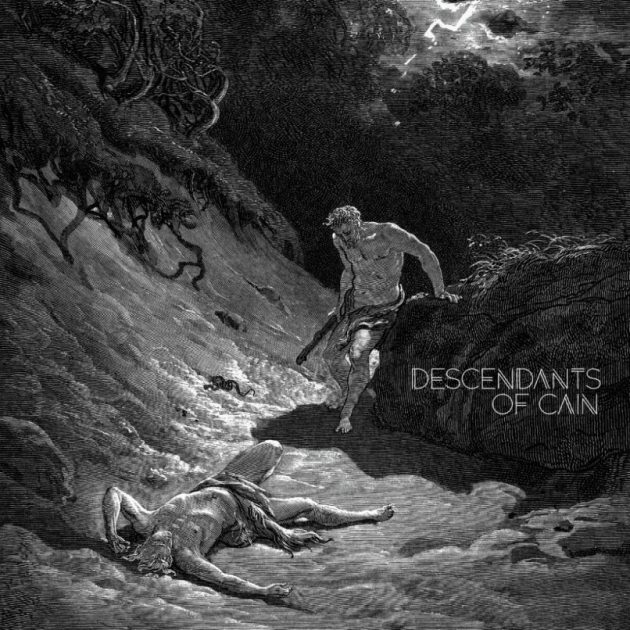
46.
Ka – Descendants of Cain
[Iron Works]
All the tried and tested stylistic tics that have defined Brownsville, NY rapper Ka‘s work over the past decade are present and accounted for on his latest record: the near-beatless instrumentals that seem to loop endlessly without clear progression (a metaphor for human existence in itself), the dusty samples of vintage movie narration, the enigmatic flow that sounds like the rapper is in a liminal state between wakefulness and sleep. And yet, Descendants of Cain still feels like a breath of fresh air.
Purveyors of trip-hop used to say that if something was worth doing, it was worth doing slowly. Ka has taken that credo and turned it into his modus operandi. There’s something so distinctly zen about how Ka constructs his music; he has the ability to slow down the world around you. But this ain’t relaxing stuff you can chill out to. Like most of his recorded output, Descendants of Cain is suffused with a sense of barely-concealed menace; the shadows in Ka’s chiaroscuro aesthetic hide dangers. The instrumentals move like smoke in lamplight, barely tangible in the flickering fluorescence; beats clang like distant factory machinery; Ka’s voice prowls like a nocturnal predator, safe in the knowledge that it will make a kill without even breaking a sweat. This album isn’t a major departure for Ka. In fact, the biggest criticism you could level at it is that it’s more of the same. But when your style is as distinctive as Ka’s you can be excused for sticking to the formula. – Andy Johnston
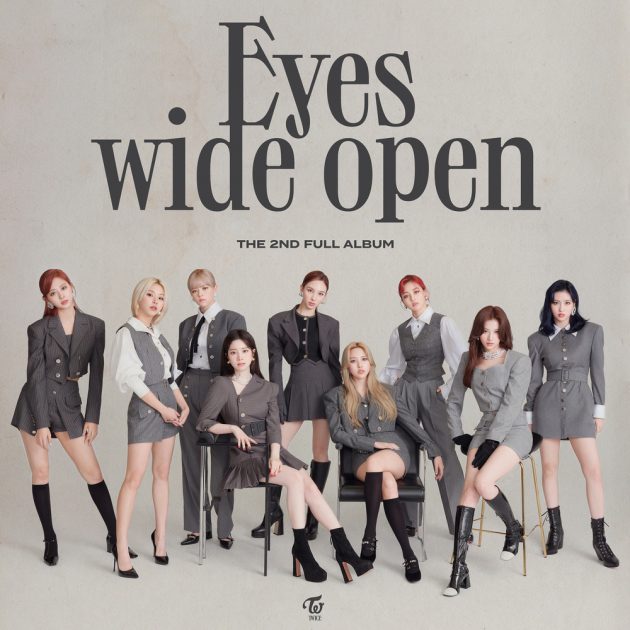
45.
TWICE – Eyes Wide Open
[JYP Entertainment]
Since 2019, the incredibly popular TWICE have gone through a musical renaissance, delivering hard-hitting concepts which have culminated with their second full-length album Eyes Wide Open. While reinvention is often integral to K-pop, with groups trying to outdo themselves with each new comeback, it has been particularly refreshing to see one of the most popular girl-groups take unexpected risks. The lead single “I Can’t Stop Me” – a dark-leaning 80s synth-pop song about how bad decisions are sometimes compulsive – in particular, shows how the group have matured since their 2015 debut. Alongside this, the members participated in writing lyrics for more than half the songs on the tracklist, showing more creative expression than ever before.
Across 13 tracks, TWICE explore freedom, romance and self-assertion with both their trademark brightness and a newfound edge. The members’ vocals are stronger and more dynamic than ever as they tackle a variety of surprising genres. From disco-inflected and effervescent funk (“Up No More”) to jazzy melodic R&B (“Handle It) to the ominously seductive styling of “Hell In Heaven”, its many different – and often surprising – directions make this album one of the best releases in this year’s pop landscape. – JT Early

44.
Pet Shimmers – Face Down in Meta / Trash Earthers
[PS Records]
OK, so we’ve obviously cheated by putting both of Pet Shimmers’ albums in our list, but choosing between them is like being asked to pick a favourite child. In fact, they are like siblings – having been released at an interval of eight months (Face Down in Meta arriving in late January, Trash Earthers in early October), there is plenty of connective tissue between the two, but enough to make them both distinct and unique, too.
With their debut, Face Down in Meta, the Bristol seven-piece collective introduced their vibrant and hallucinogenic world, full of fear, hope and fucking crazy imagery, which you can get a taste of just from track titles like “Thawed Out Plainclothes Demon” and “Post-Dick Circle Fuck”. References to memes and video game cheat codes are par for the course, but what about “a crimewave staged by cupid’s archery”? Sure. And a “fairy horse with jelly horns and sugary teeth”? Why not. While Oliver Wilde’s words might be difficult to follow on paper, nestled amidst Pet Shimmers’ shape-shifting squidgy synth-driven indie sound, where the very fabric of the universe sometimes seems unstable, it all makes perfect sense.
Unable to tour off the back of Meta, Wilde and co. found themselves glued to the news, their already-nervous dispositions greatly agitated. They used this as the impetus to record their second album, Trash Earthers, which took the polychromatic sonics of Meta and slightly fine-tuned them to emphasise each and every member of this vital collective. While Trash Earthers is still infested with monsters (“Snake Eats a Lady”, “Live-in Atrocity”), Pet Shimmers’ shift towards a more ascendant sound highlighted that these are seven people with strongly beating hearts. From sweet and swaying opener “Uhteceare”, to mid-album battle against uncertainty “Imber”, to the warming acoustic climax “Inside The Truest Centre of Everything”, the band’s sheer enthusiasm and belief in each other radiates out between the gloom. All that needs to happen now is for them to take these epics on tour and recruit more into their misfit army of blind faith. – Rob Hakimian

43.
Boldy James & Sterling Toles – Manger on McNichols
[Sector 7-G]
2020 belongs to Boldy James. There’s no real debating it. The Detroit native released not one, not two, not three, but four good to great projects this year, a nearly inexplicable leap from his previous track record (a 2013 debut album and a smattering of EPs before this January), it was as if he knew he was about to pass his moment up if he stalled any longer.
Well, it sure as hell energized the man. This year has also seen him sign with Griselda, aka the hottest street rap clique in hip hop, with James offering some of the brightest moments on projects from Westside Gunn to DeJ Loaf. He can do no wrong.
It may not reach the bordering-on-perfection high of The Price of Tea in China, but Manger on McNichols is surely the most immediately appealing for outsiders of rap standom. Producer Sterling Toles pushes Boldy towards the experimental, folding heavy jazz influences and playing into the rapper’s grim, streetwise sound. It makes a lot of sense, in fact: just about the closest stylistic comparison to Boldy’s so-good-he-makes-it-seem-like-he-isn’t-trying style is the late Guru, who himself delved heavily into jazz with his Jazzmataz series. The results here are nearly as sublime, especially when James delves into the starkly personal, with the Notorious B.I.G. referencing “Mommy Dearest (a eulogy)”. Essential listening for hip hop and jazz fans alike. – Chase McMullen

42.
Ela Minus – acts of rebellion
[Domino]
In a year where clubs have been a no-go zone, Ela Minus released a record which showcases the isolation of that most communal of experiences. acts of rebellion is dance music for introverts, for those who never quite lose themselves to the hedonism of the beat, and always retain an aching sense of their own physical and social inadequacies at their core. In a year of isolation and longing for the tribalism of gatherings of like-minded individuals, acts of rebellion acts as a gentle reminder of the what we can do when we unite. “megapunk” is an electro-clash beauty about the urgent political collectivism of minority voices, whole “tony” harks back to early 80s New Order with lyrics about the need to connect to the physical – walking or dancing all night long. “they told us it was hard, but they were wrong” is a husky, crepuscular tune that perfectly plays on the loneliness of being in a crowd, existing in the Venn diagram overlap marked bedroom/dancefloor.
This isn’t protest music in the traditional sense, but it sure as hell is questioning the way we did things in the good old pre-virus days. It’s a rallying call to look at ourselves, to assess the way we perform ourselves, and to adjust accordingly. The personal is political. – Todd Dedman
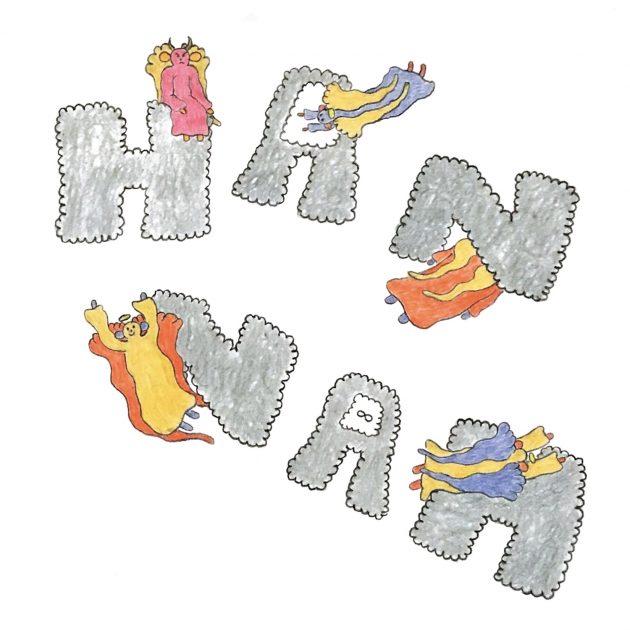
41.
Lomelda – Hannah
[Double Double Whammy]
Austin artist Hannah Read’s stage name, Lomelda, is a completely made-up word that supposedly means ‘echo of the stars’. You afford her this moment of nonsensical metaphorical fancy, for her songwriting on Hannah – and throughout her career to date – is so searingly honest, so emotionally aware, so stuck in daily existence.
Quiet and introspective music like this seems so easy to make, but is difficult to genuinely pull off. Lomelda is a sincere communicator, wielding honesty when it has never been less fashionable to do so. She displays her deepest ruminations, her most involving anxieties and there is an intimacy that never feels forced or phony. Coming from the woman who recorded her second album, Thx, while sleeping in her own car, Lomelda’s music has always been warmly unvarnished.
Consider the wondrous middle track “It’s Lomelda”, the solemn acoustic piece where she begins by listing her musical favourites: “It Low / It’s Yo La Tengo / It’s the Innocence Mission / Frank Ocean, Frankie Cosmos”; for the critic who has devoted their life to covering music, for the listener who wants to make music of their own, this equating of the creation of personality with musical inspirations is endearing and real. This is Lomelda, an artist who truly wants her audience to know everything that she is. Alongside Adrienne Lenker and Florist, no one is crafting emotive indie-folk this well. One hopes that Lomelda keeps being as honest with us for a while yet. – Conor Lochrie

